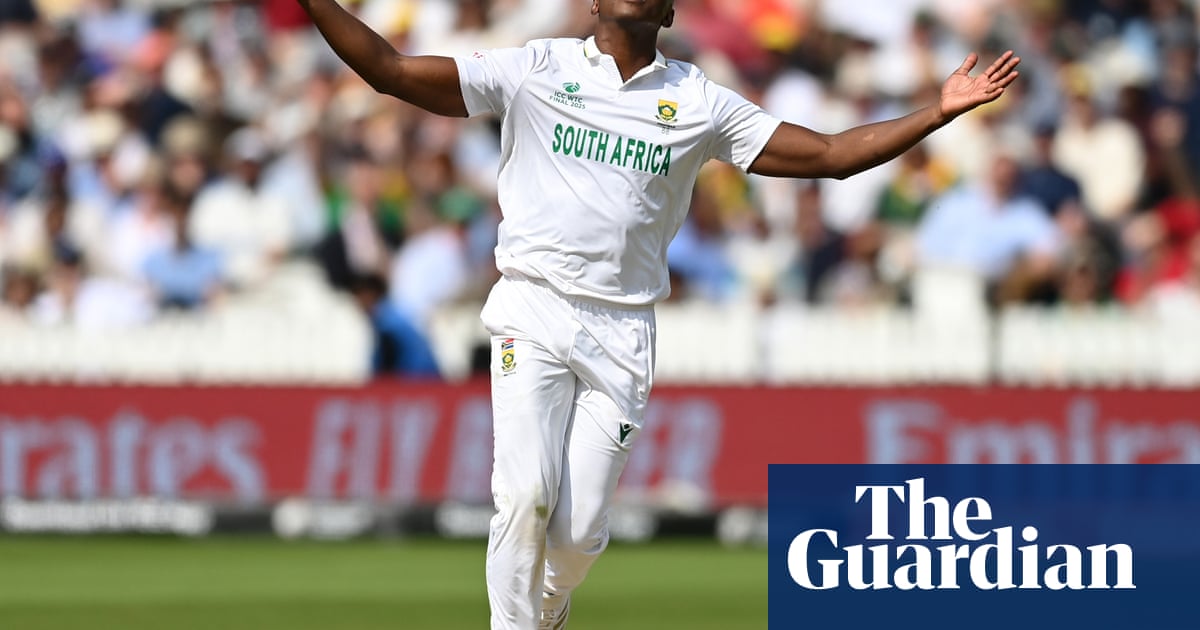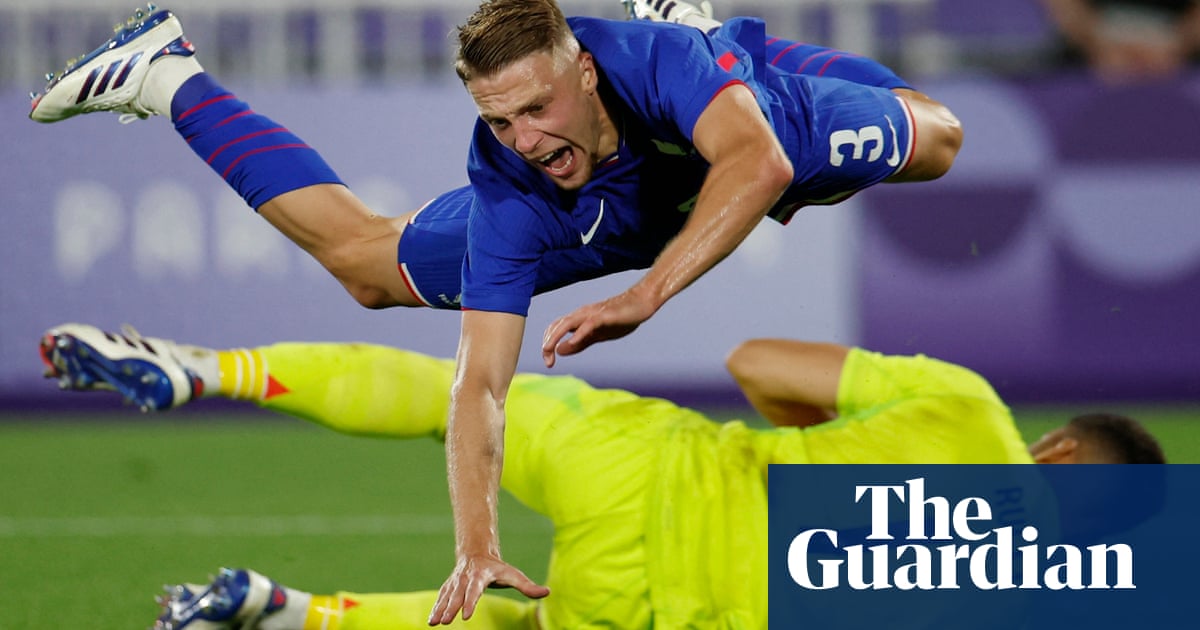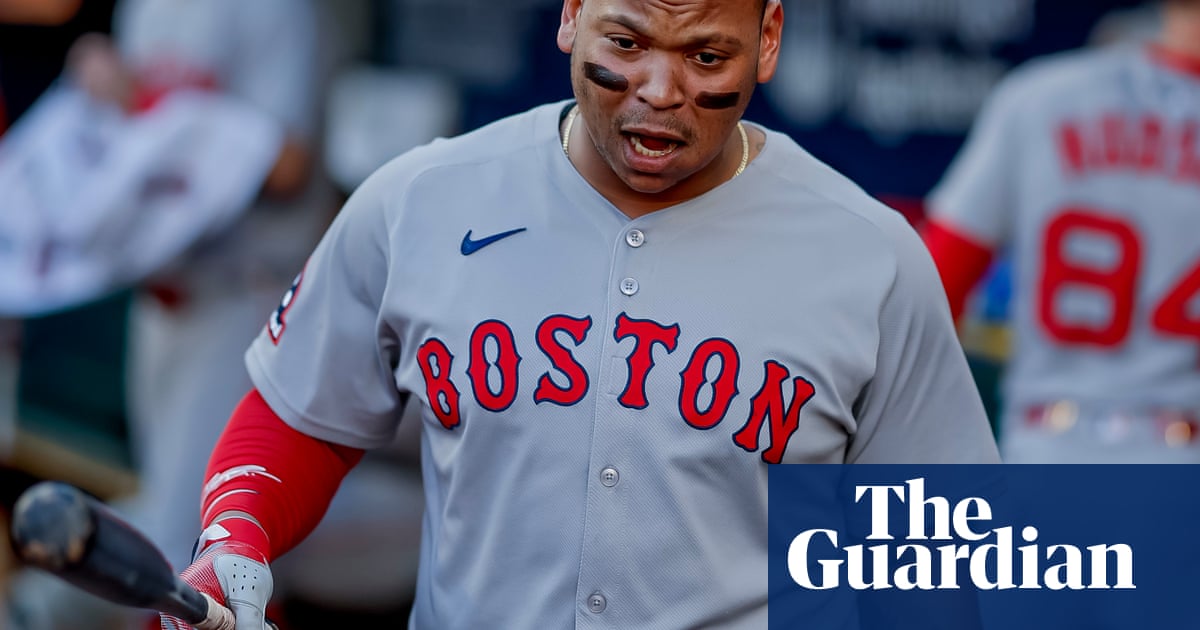Given there was a certain scepticism about South Africa’s suitability for a place in this final – their spot secured through a run of good results, mostly at home, in short series that notably did not involve either of the two sides ranked a long way ahead of them – perhaps they needed an early marker of excellence, a demonstration of merit. Fortunately they had just the man.
At 10.30am, the ground still filling, the pre-match pyrotechnic mist cleared with Kagiso Rabada at the Nursery End, ball in hand. Perhaps Usman Khawaja’s personal fog lingered a while longer, the first ball of the day zinging past his outside edge and sending the Australian opener into survival mode.
Rabada started his day with a maiden, and then another, and then another. Khawaja faced every delivery, including a couple more that he barely survived. And then, two balls into Rabada’s fourth over of the day, one he didn’t.
It was not only because of those fireworks, or the helpfully overcast conditions, that Rabada started this game under a cloud. Temba Bavuma insisted beforehand that the drug test his teammate failed in January, leading to a month-long suspension in April, had left Rabada with nothing but extra motivation, adding that his bowler was “in the best shape he’s ever been”.
Kyle Verreynne described him as “without a doubt the best bowler in the world”, a bold but not outlandish claim (Rabada has frequently topped the ICC’s Test rankings and is currently second, albeit with India’s Jasprit Bumrah in the far distance) cautiously backed up by David Bedingham, who went with the slightly more equivocal: “I genuinely think he’s the best bowler in the world.”
Later in the day Pat Cummins, Josh Hazlewood and Mitchell Starc all made compelling cases of their own for this accolade, and while Verreynne and Bedingham are obviously biased, in this form, and in this place, he was all but irresistible. Cricketing mythology has it that unfamiliarity with the Dukes ball and the Lord’s slope disadvantages visiting teams, but Rabada used both expertly to coax the ball into marginal diversions from its path, and to befuddle his opponents.
The scoreboard will tell you that Beau Webster was the most successful of them, but it disguises a period after lunch during which the 31-year-old seemed unable to understand what was happening to him, just as those watching struggled to work out how he negotiated it. Rabada’s first spell of six overs yielded just nine runs and two wickets, Cameron Green becoming the second when he, like Khawaja, was well caught at slip. His second brought 26 runs, no wickets, but brilliant entertainment.
There was one notably poor delivery, perhaps his only one of the day, which Steve Smith dealt with appropriately, before he got to work on Webster, and soon this Beau was tied up in knots. Twice the ball jagged off a wobble seam, veered up the slope and just cleared the stumps; one stayed low as Webster slashed at it, another rose just high enough to clear the top edge; another faded away and just past the outside, a fourth hit the inside but was diverted into pad rather than wicket.
Then there was one that crashed into Webster’s back pad as it arrowed towards middle stump, halfway up. A second sound saved him, perhaps the bat clipping a pad. “Did he hit it?” Bavuma asked as the countdown timer showed the seconds ticking away for a possible review. Webster was on nine.
after newsletter promotion
He had scored another 63 by the time Rabada made amends, during a spell after tea that brought three more wickets and with them a place on the honours board. He also took five in the first innings the last time he played at Lord’s, three years ago, and perhaps Stuart Broad’s brief stint as South Africa’s bowling consultant, focused on preparing their bowlers for this ground’s unique challenges, had not been entirely necessary.
Rabada has always been an enthusiast for this format, but not so much for this competition. “I would imagine all great players who play all formats would say Test cricket is their favourite format. It is the same for me,” he said last year. And then, a few months later: “Winning the World Test Championship would not completely satisfy me. The 50-over World Cup has so much value and history. The World Test Championship is not there yet, it’s a new thing.”
One imagines there might be a different answer if that question were asked today. Whatever, Rabada’s excellence is anything but a new thing. What remains unknown is whether it will be enough.









